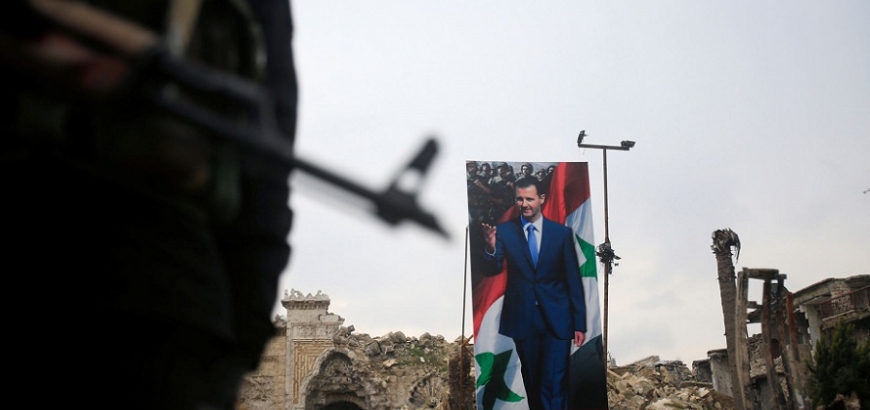Areas under the control of the Bashar al-Assad regime in the city of Aleppo and its southeastern countryside are witnessing a state of popular discontent due to the lack of basic goods, including gas, bread, water, electricity and other necessary services.
This issue is growing at the same time as frantic increases in prices of these goods—if they are available on the black market. Securing gas for the house is still a concern for most residents, despite the promises offered by the governorate, the city council, and the supply directorate to increase the distributed amounts. However, the crisis is continually growing, to the extent that the price for a canister of gas has reached 25,000 Syrian pounds in the eastern districts of Aleppo city.
According to accounts from residents, militia members, security forces, and officials from the governorate, the city and supply council, as well as the police who regularly attend the distribution of gas in the distribution centers take the largest shares, leaving only a small amount for the local government representative to distribute to residents.
According to information obtained by Alsouria Net from local sources who asked not to be named, in the end the local government representative distributes the remaining quantities to those he knows. The number of people registered in the queue could reach 6,000, while the amounts of gas canisters reaching each center is only enough for between 200 to 1,000 residents.
In the eastern and southern Aleppo countrysides, the party factions of the Baath Party branch in Aleppo undertake the distribution of gas to residents in Maskanah, Deir Hafer, Tel al-Daman, and other cities and towns, with the relatives of militia and party members obtaining canisters first.
In general, the militias monopolize fuel and oil at the gas stations, which are run by their relatives, in addition to the fact that prices have increased several times over.
In the second half of 2018, the industrial city in al-Sheikh Najjar, northeast of Aleppo, saw the migration and closing of a number of heavy and medium industrial facilities, contrary to what the President of the Syrian Industrial Federation, Fares Shihabi, said about industry returning and being revived in the city.
The taxes and fines that are imposed by the security administrations and militias at military checkpoints have contributed to raising costs, and ultimately raising the prices of the products, which are subject to competition from imported and smuggled products, which have prices up to 25 percent lower.
The terrible living conditions and the nepotism has created an unprecedented state of frustration in Aleppo, especially among the pro-Assad popular base, who have begun to attack the regime government openly, and are directly accusing the militias and security forces of stealing portions allocated for distribution, in addition to referencing security and military figures loyal to the regime by name on social media sites.
The death of an infant in Aleppo from cold has stoked anger and frustration with the regime government. Pro-regime media sites carried statements from the infant’s father that complained about his inability to secure gas for cooking and warmth, as well as the medical neglect his child suffered from the government hospital in Aleppo.
In a video taken at a recent protest in the city of Tartous, a former fighter in Assad’s forces appeared saying “Long live Syria, and down with Assad,” in an incident representing a precedent in regime areas, and reflects the unprecedented state of daring and frustration among Assad’s popular base.
Since last week, pro-regime pages on social media have been inflamed with post that have included sharply-worded criticisms and insults of members of the Assad government, with even Assad not escaping the blame.
This article was translated and edited by The Syrian Observer. Responsibility for the information and views set out in this article lies entirely with the author.


